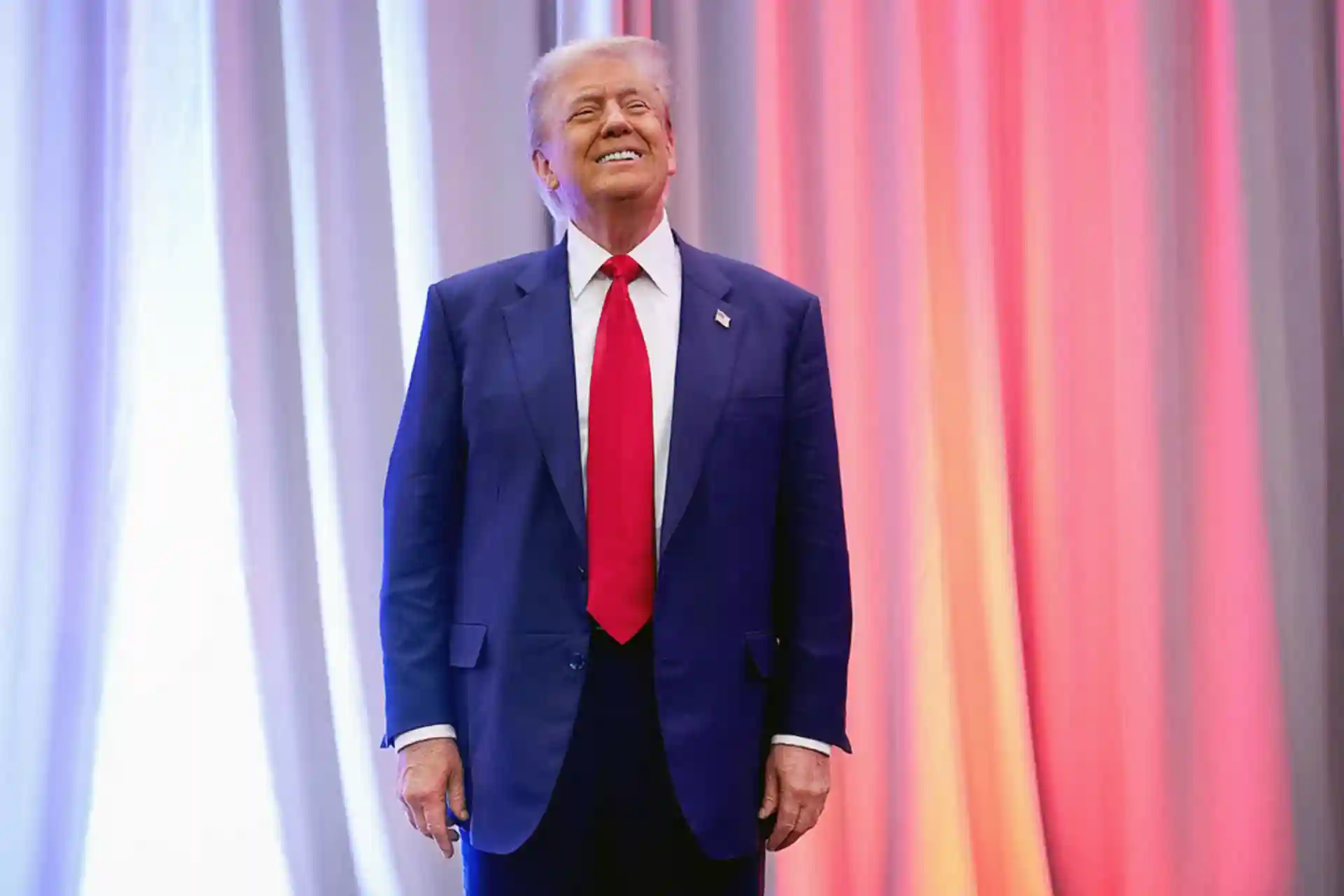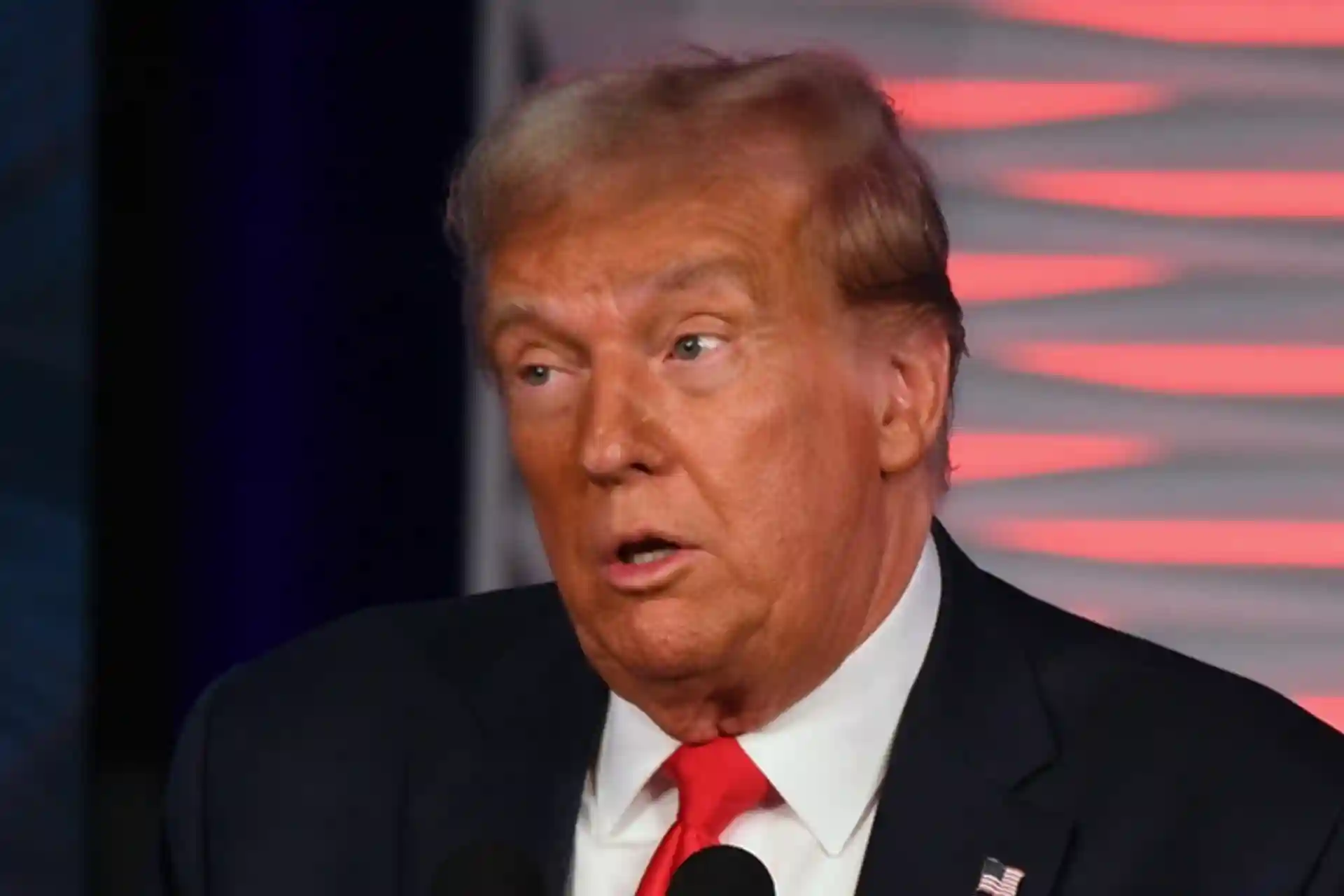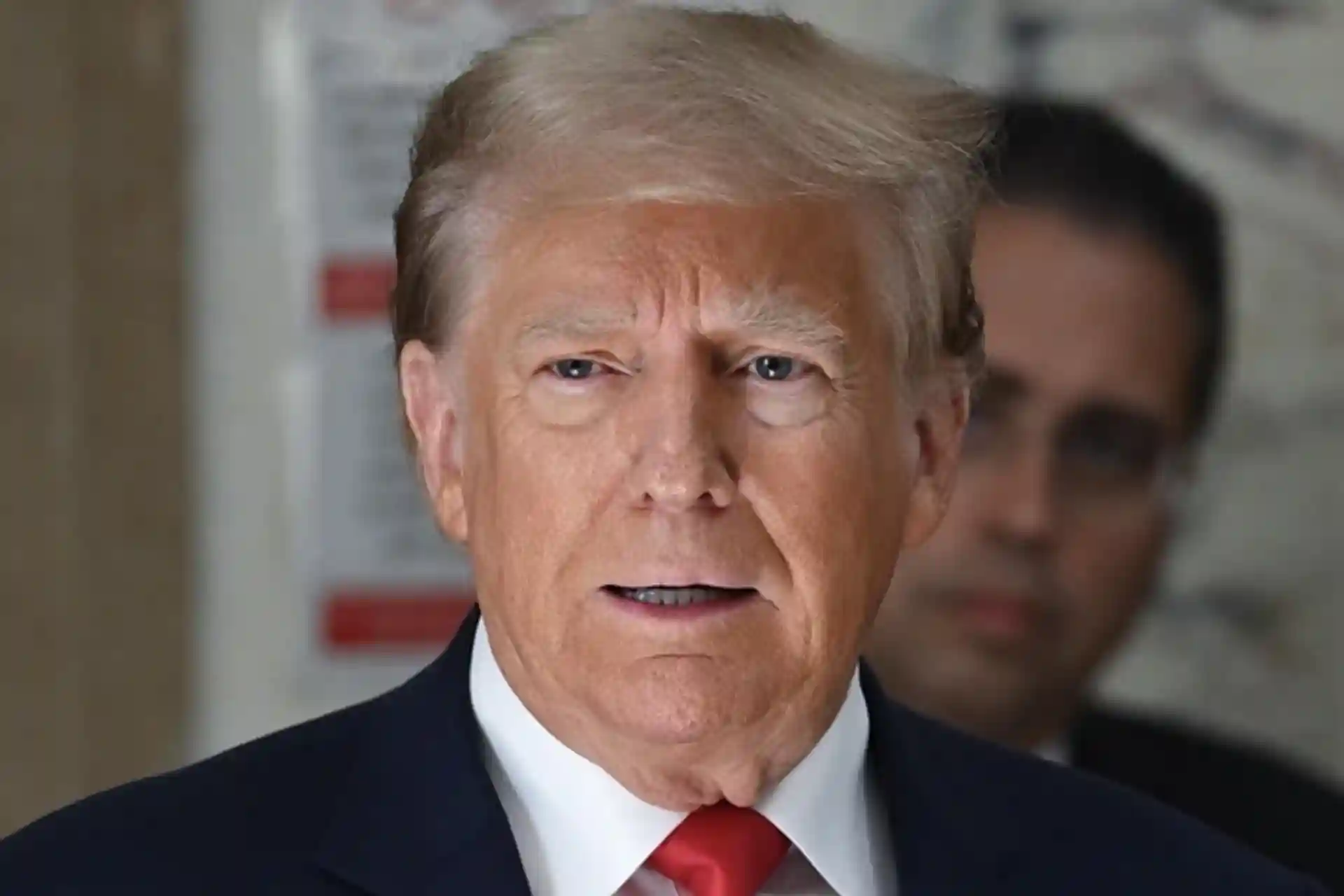How valid are Trump's claims about the Ukraine war - fact-checking
US President Donald Trump has claimed that Kiev started the war in Ukraine, that Zelensky's approval rating has dropped to 4 percent, and that Ukraine has not held presidential elections since 2019, when a "comedian with no prior political experience" came to power. How well-founded are his claims?
US President Donald Trump, speaking from his Mar-a-Lago mansion in Florida, made a series of statements that appeared to accuse Ukraine of waging war with Russia.
In an interview with reporters, Trump spoke about the reputation of President Volodymyr Zelensky and noted that the planned elections in Ukraine have not yet been held due to martial law.
Trump's comments, some of which appeared to reflect Russia's position on the war, came hours after US officials met with a Russian delegation in Riyadh to begin talks to end the nearly three-year-old conflict.
Zelensky later accused Trump of "living in a disinformation space" created by Russia.
The Ukrainian government expressed dissatisfaction with its failure to participate in the February 18 talks in Riyadh. But Trump dismissed those concerns, telling reporters that Ukraine had three years to end the war, before accusing Kiev of starting the conflict.
"You should never have started it," he said. The Kremlin has previously accused Ukraine of starting a war against Russia.
"In 2014, they started the war. Our goal is to stop this war. We didn't start this war in 2022," Russian President Vladimir Putin said in an interview with US talk show host Tucker Carlson in February 2024.
Ukraine did not start the war. Russia launched a full-scale invasion of Ukraine in February 2022, and annexed Crimea in 2014.
The annexation took place after Ukraine's pro-Russian president was ousted from power by popular protests.
Russia has also backed separatist forces that have seized territory in eastern Ukraine and accused the new government in Kiev of discrimination and genocide against Russian speakers. The International Court of Justice has rejected Moscow's claims.
After negotiations aimed at ending the post-2014 conflict failed, Russia began massing troops on its border with Ukraine in late 2021.
Putin launched the invasion on February 24, 2022, saying the operation's goal was to "demilitarize and denazify" the pro-Western government of Volodymyr Zelensky and prevent the country from joining NATO.
In Ukraine's last parliamentary elections, support for far-right candidates was 2 percent. It's also worth noting that Zelensky is Jewish and his party is considered centrist.
Although NATO officials said in 2021 that Ukraine was a candidate for future membership in the organization, it was not part of any formal process.
Claim: "I didn't want to say this, but his public approval rating has dropped by 4 percent"
President Trump also claimed that Zelensky's approval rating had fallen by 4%.
It's unclear which source the president was referring to, as he didn't provide any evidence. We've asked the White House for clarification.
A poll this month found that 57 percent of Ukrainians said they trust the president, according to Ukraine's Kiev International Institute of Sociology.
However, this figure is down from 77 percent at the end of 2023. In May 2022, it was 90 percent - indicating a decline in the president's popularity.
Some other polls suggest that Zelensky would trail his closest rival, former army commander Valery Zaluzhny, in the first round of any upcoming election, suggesting they could face off in a runoff.
Official surveys are limited, and accurate polling is difficult to conduct during a war. Millions of Ukrainians have fled, and a fifth of the country is under Russian occupation.
Following Trump's comments, some major Russian media outlets latched onto the claim.
On Telegram, Ukrainian MP and Zelensky critic Oleksandr Dubinsky claimed that Trump's assessment was correct, citing a poll he conducted.
Dubinsky is accused of treason in Ukraine and "working for Russian intelligence."
He himself denies this.
Claim: "No elections were held in Ukraine, in fact, martial law was imposed there."
Trump also pointed out that Ukraine has not held presidential elections since 2019, when Zelensky, a comedian with no prior political experience, came to power.
His first five-year term was due to end in May 2024. However, Ukraine has been under martial law since the Russian invasion began in February 2022, and the elections have been suspended.
Ukraine's martial law laws were enacted in 2015 - shortly after Russia annexed the Crimean peninsula and several years before Zelensky and his Servant of the People party came to power.
In November 2024, all parties in the Ukrainian parliament supported postponing elections until the end of the war. According to polls, Ukrainians also largely approve of this decision.
According to a survey conducted among Ukrainians by the International Republican Institute in September and October, more than 60 percent of the population opposes holding elections during the war.
Zelensky has promised to hold new elections once the conflict is over, but has not yet confirmed that he will run. Some experts say holding elections in Ukraine before the war ends is almost impossible, as Russia continues to bomb many cities and millions of citizens have fled abroad or are living under Russian occupation.
Trump's intervention came hours after the Kremlin questioned Zelensky's legitimacy, saying his term in office had expired, as Moscow has repeatedly stressed in recent months. On January 28, Putin called Zelensky "illegitimate" in an interview with Russian media.
Referring to the election situation, Trump indicated that he was aware of the oft-repeated accusations from Russia, saying: "This is not Russia's word, this is the opinion coming from me and other countries."
For his part, Zelensky had previously said that "throwing the topic of elections into the middle of a war would be completely irresponsible."
Source: BBC Uzbek Service



